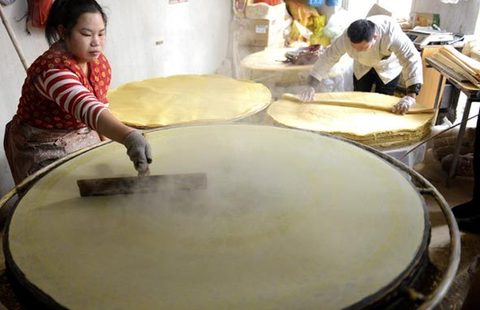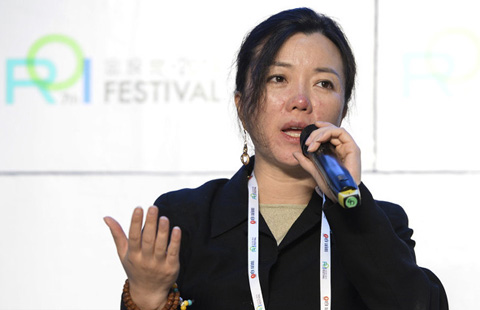Via apps, freelance workers earn more than white-collar professionals
By Meng Jing and Gao Yuan (China Daily) Updated: 2015-02-09 07:44Yang Liu, a 21-year-old self-taught manicurist, started taking online bookings for manicures two months ago via an app named Helijia, where a few thousands manicurists and pedicurists are available for booking.
"I earn at least 50 percent more than I did at traditional salons," says Yang, who works at a brick-and-mortar salon for about four years. Manicurists working at beauty salons in Beijing usually earn around 4,000 yuan a month.
"I get to set service prices and my working hours. It feels like I am running my own salon online," Yang says.
China's thriving Internet industry has played a major role in bridging the gap between supply and demand. However, the effectiveness with which O2O attracts customers also means a heavy workload, something that not every freelancer is willing to take on.
Hou Guopeng, founder of Momoda, an app that sends professionals to pet owners' home to help wash and dry their animals, says it is very challenging to find pet groomers to meet the surging demand.
"In brick-and-mortar pet stores, a pet groomer usually washes two dogs a day. But with our app, they have to travel around the city to wash four to five dogs a day. Despite the fact that they can make much more money, some of the young pet groomers would rather have an easy life," he says.
- Chinese container vessel arrives in Myanmar
- China warns of challenges for global economy in 2015
- Porsche to recall 14,571 cars in China
- Chinese companies take leading role in building airports in Africa
- John Naisbitt says China is 'The game-changer'
- Electric car share project to shake up tradtional market
- Infiniti lays foundations for ambitious local plans
- Daimler AG to strengthen R&D in China

















